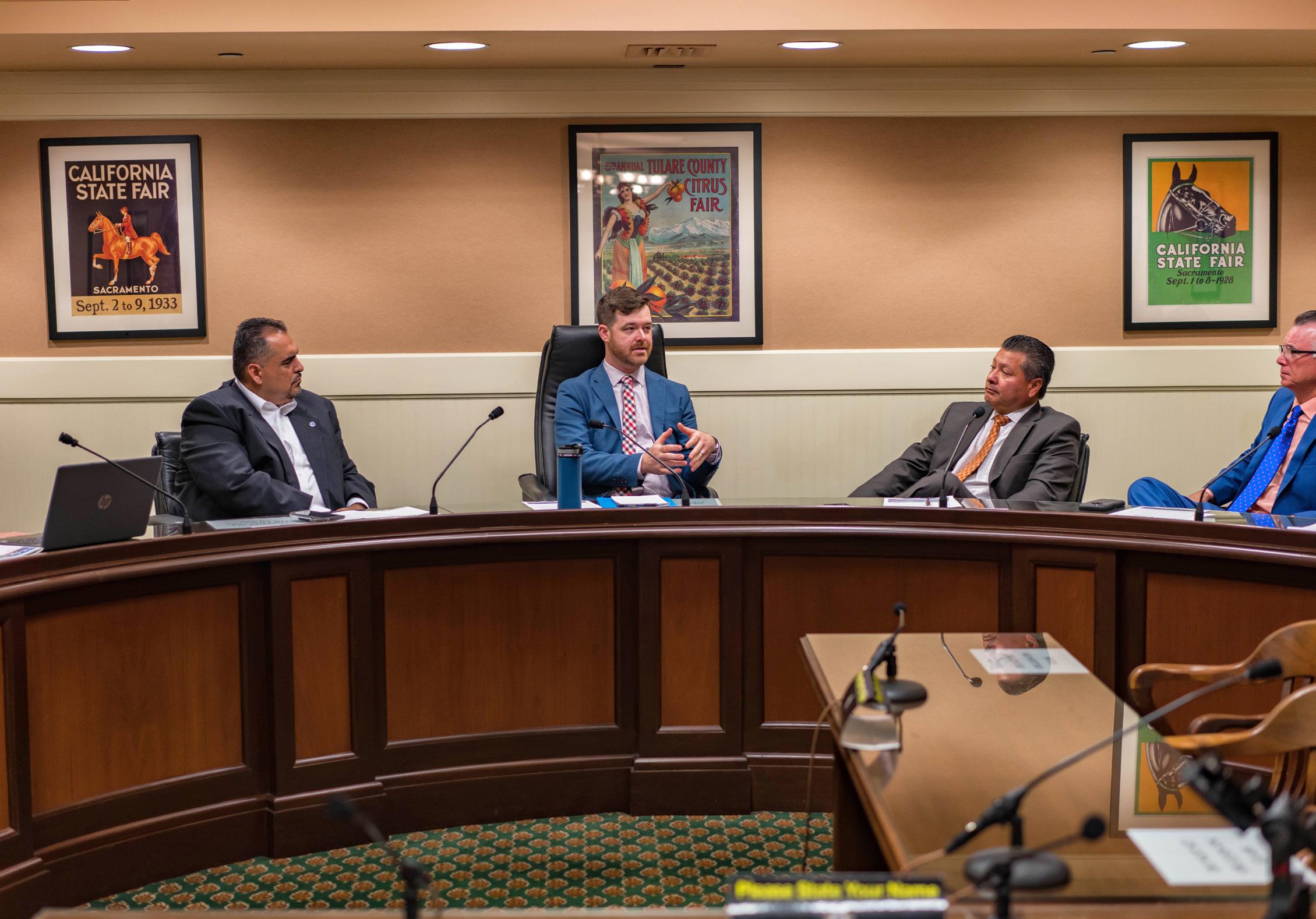
2 minute read
Economic Competitiveness and Trade
In order for Riverside County to maintain and build on its economic competitiveness, Riverside County needs to continue to expand its digital footprint and encourage development of a more robust global economy, supporting local enterprises and sustaining economic vitality. International trade plays a significant role with our agriculture community, with trade agreements and workforce policy often creating significant headwinds for local growers to be competitive. Other industries such as large venue entertainment and our overall hospitality sector are also greatly impacted by international security and customs policy, as well as regional, national and global transport and travel infrastructure and mobility policy.
Developing trade partners and maintaining open markets that are fair and competitive is imperative to promoting and protecting our international trade markets. The ability to move into global markets is partly reliant upon the President’s ability to fast track negotiating authority, which allows the administration to negotiate trade agreements that Congress can approve or disapprove but cannot amend or filibuster. Fast track policies provide an appropriately balanced role for Congress and are clearly in Riverside County’s economic interests.
The State must continue to avoid economic policy that hurts the California economy, increases the cost of government processes, and encourages companies to leave the State—taking jobs with them. The best way for California to protect its job base is to ensure a diverse workforce that will be fit for an increasingly interdependent and competitive global economy. California must reduce the high cost of doing business in this State.
Positions
ECT-1: Overall trade policy and practices that enhance Riverside County as a globally competitive region, able to compete for new foreign investment and increased imports and exports.
ECT-2: Unlimited fast track authority for the President in international trade negotiations and U.S. participation in the World Trade Organization (WTO) and adherence to its precepts for the promotion of fair standards.
ECT-3: Removing barriers that hinder U.S. companies in foreign markets and the elimination of unfair trading practices.
ECT-4: Strongly oppose international policy that puts Riverside County businesses, especially our agriculture industry, at a severe competitive disadvantage by allowing competing international markets to utilize sub-standard work conditions and employee wages to produce cheap products and services.
ECT-6: International trade education designed to increase general awareness, understanding, and participation in the growth of international business.
ECT-7: Programs and training that assist companies to expedite regulatory compliance for trade, such as Foreign Trade Zones.
ECT-8: Support for leveraging foreign investment, existing treaties and expansion of opportunities with foreign governments, and international and domestic business incentives and programs which grow Riverside County’s economy through import and exports via Free Trade Agreements, the U.S. Export-Import Bank, U.S. Commercial Services and District Exports Council, and industry focused trade missions.
ECT-9: Support for research and development of new technologies that will generate new business creation and growth opportunities such as 5G network expansion and IoT to create a competitive Smart Metropolitan Region prepared for business in the Smart Economy.
ECT-12: Support open markets here and abroad including supporting trade deals in the Pacific and with the EU and UK and the United States-Mexico-Canada Agreement (USMCA) – while protecting local Ag.
ECT-13: Greater investment from and collaboration between federal, State and regional economic development organizations to drive more foreign direct investment into Riverside County.
ECT-14: Designation of the Jackie Cochran Airport as a Customs Port of Entry to increase economic potential for the airfield and surrounding areas.








